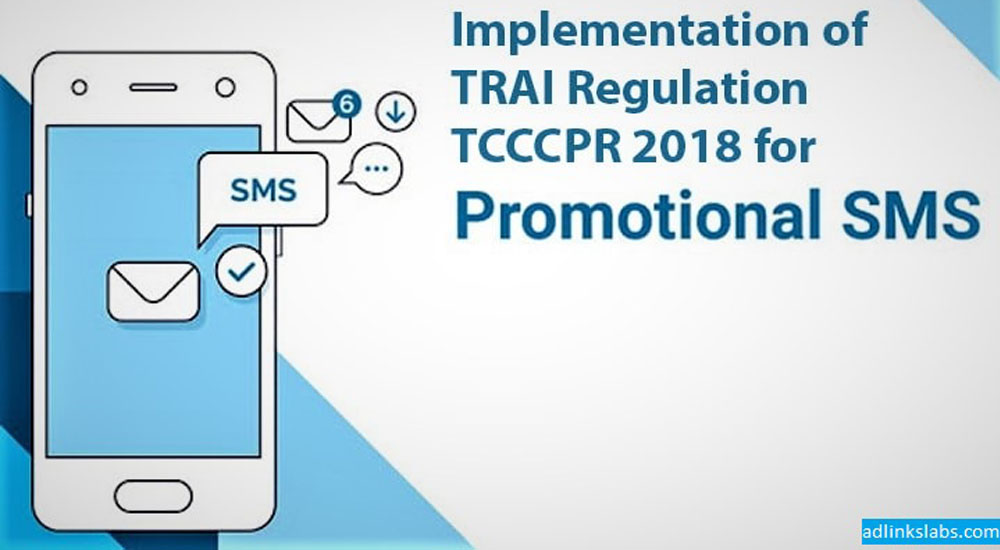Is bulk SMS sending legal?
Effective communication is one of the most important parts of everyone’s life. Staying in touch with the right customers can also help businesses advertise and familiarise themselves with newly launched products and services. Bulk messaging is the best way to stay in touch with clients. It can change the way your business communicates with its contacts.
But according to the new rules issued by TRAI, the bulk SMS service providers need to follow certain rules and regulations while offering the bulk SMS service to their customers. TRAI’s new rule for commercial messages aims to restrict unrequested and fraudulent messages. No matter which industry you are in, you must follow the guidelines before sending bulk SMS. The norms require valid entities sending commercial text messages to register message headers and templates with telecom operators.
If you’re sending any texts to your customers, you need to read the rules ahead.
In India, there are 2 types of SMS that a business can send
A. Transactional SMS is used to deliver critical updates and alerts.
With Transactional SMS, one can send informative, generic, critical or other data or information. All SMS content needs to be transactional and should not contain any promotional content on this route.
B. PROMOTIONAL SMS: Send marketing messages to users who have opted in.
Promotional messages are used to send promotional information about goods and services. They can be used to promote brands, update information, and provide offer details.
How to send Bulk SMS legally!
Text messaging in India comes with a few regulations and restrictions. The rules and regulations are as follows:
1. DLT Registration
According to the Telecom Regulatory Authority of India, telemarketers have to be registered on the Distributed Ledger Technology (DLT) platform, which is a block-chain based registration system. It is issued to control the SMS spam from various marketing firms. Earlier, bulk SMS providers were required to register with TRAI. But now, with new norms, whoever wants to SMS their customers’ needs to be registered on the DLT platform. DLT Registration is important to maintain the security and privacy of the customers and to prevent spamming & fraudulent activities.
2. SMS scrubbing
Companies have to upload all the numbers of customers before sending any promotional SMS to customers. Filtration of the customer preference is done on a real-time basis and the results are visible instantly. The SMS and OTPs, when sent by user entities (banks, payment companies, and others), are checked against the templates registered on the DLT platform–a process called SMS scrubbing.
Scrubbing refers to the process that matches SMS content with a pre-registered template submitted by every principal entity that sends commercial text messages.
Enforcement of TRAI regulations is vital as delivery of non-compliant messages allows fraudulent criminals to conveniently misuse the message delivery system for cheating and defrauding customers, it claims.
3. DLT Header Approval & DLT Template Approval
The rules instruct that Telco’s verify the content of every SMS with the registered text before delivering it to consumers. For this, Telco’s have adopted distributed ledger technology—DLT (or block chain-based technology) that checks headers, or sender IDs, and content of every SMS originating from a registered source, while unregistered sources are rejected.
This means all transactional and promotional messages are supposed to have a standard template with header, preference, and content, which should be registered with the telecom operators.
The issuing of headers, registration of templates, and various other checks and balances would allow the verification of the identity and purpose of communication by genuine entities.
The regulations by TRAI require the compulsory registration of transaction and service-related OTP templates. Every content template that is being registered by a principal entity (telco) is required to contain a “brand name” or complete business name, and a trademark in the content field. Any entity that does not have a telco-approved registration and sender ID will find that its SMS are not being processed and will not be delivered to the intended recipient.
4. Customized Preference
Under the new regulations, SMSs are categorised into three types of activities: transactional, promotional, and service, including implicit and explicit. The transactional category is reserved for banks for sending OTPs. Service-related informative messages will fall under the implicit category. If a customer has opted to receive promotional SMS from a particular entity, then it will fall under the explicit category. General promotional SMS, including offers and discounts, will be delivered only to subscribers who have opted for do-not-disturb (DND) or do-not-call (DNC).
In the consumer’s interest, TRAI had earlier notified the Telecom Commercial Communications Customer Preference Regulations (TCCCPR) to prevent spam and fraudulent messages. As per the provisions of these regulations, senders of messages such as OTP, transactional messages, service messages or commercial messages are required to fulfil the prescribed regulatory requirements for sending bulk communication.
In short, in order to legally send SMS to potential customers, you need to make sure you have consent and clearly state how customers can unsubscribe if and when they want to. This is mandatory as long as the data isn’t public.
When sending bulk SMS to customers, keep TRAI rules in mind. Don’t send illegal SMS in India. With the Adlinks Technologies platforms, you can reach hundreds of thousands of customers with a mere few clicks based on TRAI rules and regulations.
